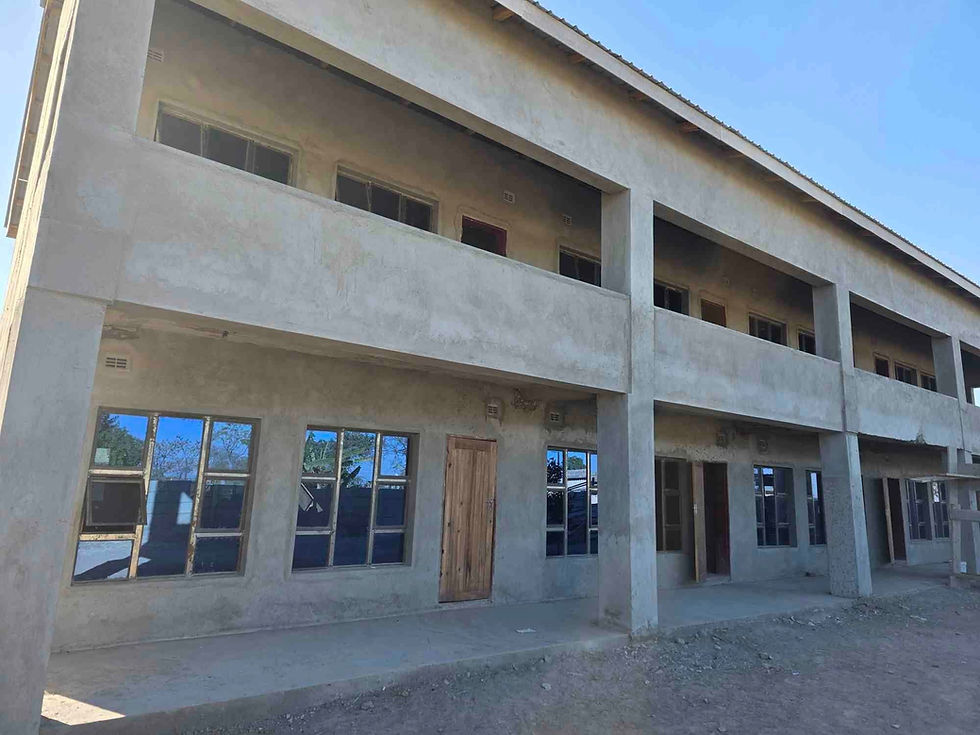From Garden to Table: How Chipochashe is Tackling Malnutrition Through School Feeding and Sustainable Practices
- machipisamoses1
- Jul 6, 2024
- 3 min read
Child malnutrition remains a significant public health challenge in Zimbabwe's rural areas, with various interconnected factors contributing to the problem.
Current Situation:
Stunting: Stunting, a manifestation of chronic malnutrition, affects approximately 24% of children under five years old in Zimbabwe. This figure is likely higher in rural areas due to limited access to diverse and nutritious foods.
Micronutrient Deficiencies: Deficiencies in essential vitamins and minerals like Vitamin A, iron, zinc, and selenium are widespread among children in rural Zimbabwe. These deficiencies compromise immune function, cognitive development, and overall health.
Food Insecurity: Seasonal and chronic food insecurity are persistent issues in rural areas, driven by factors such as climate change, economic instability, and limited agricultural productivity. This situation exacerbates malnutrition, particularly during lean seasons.
Limited Access to Quality Diets: Many rural households lack access to affordable, diverse, and nutritious foods. Diets are often based on staple grains with limited intake of fruits, vegetables, and animal-source foods, leading to inadequate nutrient intake.
Inadequate Nutrition Services: Rural areas often have limited access to healthcare facilities
and nutrition services, hindering early detection and treatment of malnutrition.
Challenges:
Poverty: Poverty remains a fundamental challenge, limiting households' ability to purchase nutritious foods and access healthcare services.
Climate Change: Erratic rainfall patterns, droughts, and floods disrupt agricultural production, leading to food shortages and price volatility.
Limited Agricultural Productivity: Smallholder farmers in rural areas face challenges such as limited access to inputs, technology, and extension services, leading to low crop yields and reduced income.
Inadequate Infrastructure: Poor road networks, limited access to clean water, and inadequate sanitation facilities hinder access to markets, healthcare, and education, further exacerbating malnutrition.
Sociocultural Factors: Traditional beliefs and practices around child feeding and care can sometimes lead to suboptimal feeding practices.
How we are helping mitigate malnutrition among our learners
At Chipochashee we are proactively addressing the widespread challenge of child malnutrition in our Zhanje and Ditima Villages. Recognizing the detrimental impact of stunting, affecting 25% of young children in Zimbabwe, we have implemented a comprehensive school feeding program that provides daily nutritious meals to 140 of our students in infant school.
To enhance the sustainability and nutritional value of our program, we have established a school garden where a variety of vegetables are cultivated. This fresh, nutrient-rich produce is incorporated into our school meals, supplementing the children's diets with essential vitamins, minerals, and dietary fiber. We have also introduced a layer chicken project to provide a consistent source of eggs, a valuable source of protein and nutrients.
In our commitment to sustainable agriculture, we have initiated a vermicompost project to produce organic fertilizer for our garden. This not only enriches the soil and improves crop yields but also reduces our reliance on external inputs, making our food production more self-sufficient.
We believe in a forward-thinking approach and are continually exploring innovative agricultural practices, such as permaculture and agroforestry, to optimize our land's productivity while minimizing environmental impact. By integrating these sustainable methods into our school's feeding program, we aspire to create a model for other schools to follow, demonstrating the symbiotic relationship between education and agriculture in combating malnutrition.
Our commitment extends beyond providing meals. By embracing sustainable agriculture and promoting healthy eating habits, we are contributing to the overall well-being of the Zhanje and Ditima communities. We believe that our initiative is a testament to the power of local action in addressing critical challenges and building a brighter future for our children.


Comments